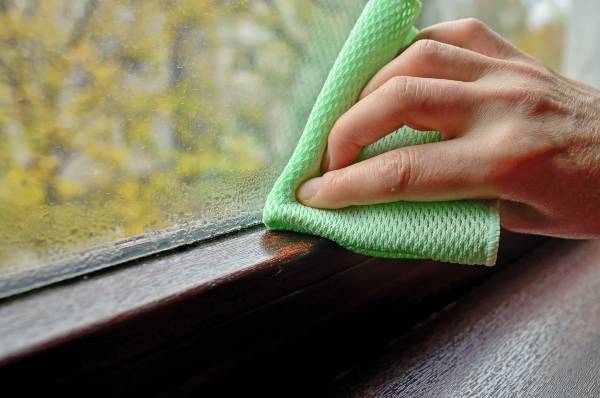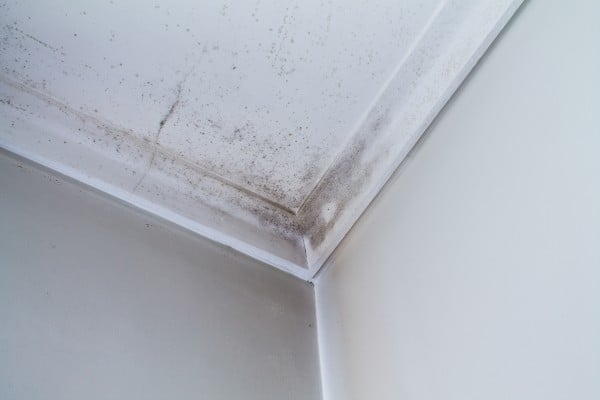HVAC Training Shop is reader-supported. As an Amazon Associate, I earn from qualifying purchases.
Humidity is an important factor in the safety, health, and comfort of your home. Besides comfort, humidity affects your health and general well-being inside of your residence.
Depending on a variety of conditions, you may want the humidity to be more or less at a certain level.
In this article, I’ll discuss the ideal humidity and the problems associated with high and low humidity. I’ll also discuss how to increase humidity in a room and how to decrease humidity in a room.
What should the humidity be in my house?
Generally speaking, the humidity should be between 30-60% in your house.
An indoor humidity of 30-60% is recommended by the EPA to reduce mold growth.
However, you may want the humidity to be at a certain level depending on certain factors such as:
- Outdoor conditions. You may want it to be slightly more humid indoors when it’s humid outdoors.
- Health concerns (such as breathing issues).
- Maintenance of your home. Too wet or too dry air can cause issues in wooden homes.
What should the humidity be in my house in the summer?
The ideal home indoor humidity level in the summer is 40-60%.
By having indoor humidity levels at about 40-60% in the summer, you can ensure that your home will maintain a reasonable comfort level without causing health issues or damaging your home.
It is important to not have too low of a humidity level or else health issues or damage to your home can occur. For this reason, it is usually more appropriate to have indoor humidity levels slightly higher in the summertime.
What should the humidity be in my house in the winter?
The ideal home indoor humidity level in the winter is 30-50%.
Wintertime brings colder temperatures. Cold air can hold less moisture than warm air. So generally speaking, cold air = dry air.
During the wintertime, your home is susceptible to condensation forming on surfaces. It is very important to prevent condensation from forming on surfaces in your home.
Condensation forms due to the warm, moist air inside of your home coming into contact with cold surfaces in your home (such as the windows).
This happens because cold air can hold less moisture than warm air.
For this reason, it’s usually necessary to have lower humidity levels in your home during the wintertime.
How to control humidity in your house
You can manage the humidity inside your house either passively or actively. Sealing off your house from external sources of humidity is one method of passive control.
Active methods of humidity control include using devices such as humidifiers or dehumidifiers. Other active methods of humidity control include using exhaust fans, and the use of your HVAC system.
What to do when you have high humidity in the house
With high humidity in the house, it is usually much easier to breathe. But there are still health risks associated with high humidity.
High humidity can cause mold and bacteria to flourish. This can aggravate your allergies and other respiratory conditions.
High humidity also makes it difficult for your body to cool itself by sweating.
Your body relies on the evaporation of sweat to cool itself. But if the humidity is too high, your sweat cannot evaporate.
High indoor humidity can also damage your home by making wood swell up, paint and wallpaper peel, and doors and windows stick. High indoor humidity also provides a breeding atmosphere for insects and other pests.
What causes high humidity in a house?
During the summer, closing your doors and windows and using your air conditioner is usually enough to bring down the humidity levels inside of your home.
However, there are some situations where you’ll still have high humidity in your house.
To address the issue of high humidity in your house, we need to first ask: What causes high humidity in a house?
There are two sources of humidity in a house:
1. Internal sources of humidity
Internal sources of humidity is humidity that comes from inside your home. Here are a few examples of internal sources of humidity:
- Bathrooms. Toilets, showers, and sinks will add to the humidity level inside your home.
- Kitchens. Cooking food and boiling water will create humidity inside your home.
- People breathing
2. External sources of humidity
External sources of humidity originate from outside of your house.
This means that any outside air that comes into your house from the outside can be considered an external source of humidity.
Here are a few examples of external sources of humidity:
- Open doors/windows.
- Cracks around doors/windows.
- HVAC systems. Central HVAC systems bring fresh outside air into your home.
How to reduce humidity in a house
To start reducing the humidity in your house, you need to first identify the source of the humidity.
If it is an internal source such as a bathroom (hot showers can generate lots of humidity!) or a kitchen (sinks and other wet areas), then you must exhaust the moisture or clean it up before it causes problems.
If the humidity is an external source, then you want to ensure that you seal your home.
Shut all your doors and windows, and check that they form a good seal when closed.
Cracks around the perimeter of doors and windows are notorious for letting humidity infiltrate the interior of your house.
Besides managing the sources of humidity, you can also actively remove humidity from the air inside your house by using a dehumidifier.
If you need some help figuring out where you should use your dehumidifier, check out my dehumidifier placement guide here.
High humidity in a house with air conditioning
If you are running your air conditioner and are having issues with high humidity, then it could be due to one or more factors.
First, leaving your air conditioner fan running continuously can contribute to high humidity levels in your house. This is because when the fan runs continuously, the evaporator cooling coil cycles on and off to maintain the temperature in your house.
When the coil is cold, it cools and dehumidifies air when water from the air condenses on the coil. If the fan stays on while the cooling turns off, then the fan blows the moisture from the coil back into your house.
An oversized air conditioner can contribute to high humidity in your house in very much the same way. This is due to the cooling coil only cycling on for short periods of time, so the air is dehumidified for only short periods of time.
If you notice that your air conditioner is only turning on for short periods of time, or is mostly blowing warm air while still being able to maintain setpoint, then your air conditioner might be oversized.
One way to increase your air conditioner’s dehumidification is to ensure that the fan only runs at low speed.
When the fan runs at low speed, less air passes over the coil, cooling the air to a lower temperature.
When the air cools to a lower temperature, more dehumidification occurs. This is because cold air can hold less moisture than warm air. The fan also needs to run in auto mode, where the fan only runs when it needs cooling.
Low Humidity in the house
There are many obvious problems that high humidity can cause. But you don’t want to have low humidity either.
Health and comfort are the two main factors to worry about when it comes to low humidity.
Dry air can be bad for your respiratory system and sinuses.
Dry sinuses can make you vulnerable to colds, viruses, and infections. This problem is worsened by the fact that bacteria and viruses tend to live longer in dry air.
Dry air also sucks the moisture out of your skin. Low humidity will cause skin issues such as cracking, dryness, and chapped lips.
Dry air also makes you feel colder than you actually are. How does that happen?
Dry air pulls moisture from your skin, cooling your body in the process. This can cause you to turn up the heat, drying out the air even more!
What causes low humidity in a house?
A few different things cause low humidity in your house.
First, your home’s heating system works by heating the air in your home. This heating also removes some of the moisture from the air, resulting in lower humidity.
Infiltration of cold, dry outside air into your home during the wintertime also causes low humidity in your house.
Cold air cannot hold as much moisture as warm air. When the dry winter air comes into your home and warms up, the air inside your house becomes drier in the process.
How to increase humidity in a house
First, you’ll want to seal off your house from the outside. Make sure that no cold, dry air is leaking in.
Some active methods of increasing humidity in a house include boiling water on the stove, using a spray bottle to spray water around your house, and leaving the door open when you shower.
You may also want to consult with your HVAC professional to ensure that your home’s HVAC system is not bringing in an overabundance of dry outside air.
And of course, one of the best methods of increasing humidity in a house is to use a humidifier.


